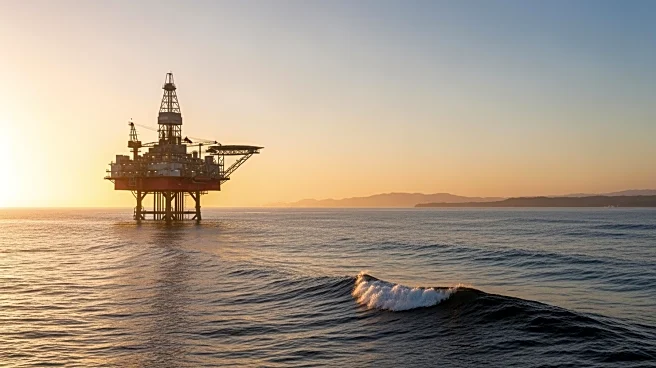What's Happening?
The Trump administration has announced plans to open new areas for oil drilling off the coasts of California and Florida, marking a significant shift from former President Joe Biden's more limited approach.
The proposal includes six offshore lease sales between 2027 and 2030 along the California coast and new drilling off the Florida coast in the Gulf of Mexico. The administration aims to boost U.S. energy production, particularly fossil fuels, as part of its 'energy dominance' strategy. This move has drawn bipartisan criticism, with concerns about potential harm to coastal communities and ecosystems.
Why It's Important?
The decision to expand offshore drilling is significant as it could impact U.S. energy security and job creation in the oil industry. However, it also raises environmental concerns, particularly in states like California and Florida, where tourism and clean beaches are vital to the economy. The plan could lead to increased oil production, but it risks potential oil spills that could damage coastal economies and ecosystems. The administration's focus on fossil fuels over renewable energy sources could also affect the U.S.'s efforts to combat climate change.
What's Next?
The administration's plan is likely to face legal challenges and opposition from environmental groups and state governments. California Governor Gavin Newsom has vowed to use every tool available to protect the state's coastline. The Interior Department will consider public input before finalizing the program, with a 60-day public comment period beginning soon. The outcome of these lease sales and the administration's ability to implement its energy strategy will be closely watched by industry stakeholders and environmental advocates.










